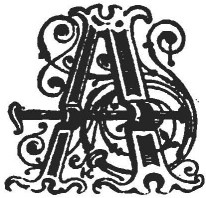
Traditions and Hearthside Stories of West Cornwall, Vol. 2, by William Bottrell, [1873], at sacred-texts.com
Legends of St. Levan.
Or built them cells beside the shadowy sea,
And there they dwelt with angels, like a dream!
Rev. R. S. Hawker.
St. Levan and His Sister.
 |
The story says that good old St. Levan was one evening down -fishing from his accustomed place in Rospeltha cliff—still called Old St. Levan's Rocks. He cast in his hook-and-line, intending to take one fish only for his supper, from the multitude that always came around the rock on which he stood as soon as he cast in "browse" (garbage to attract fish). Contrary to St. Levan's wish, two chads, or young breams, fastened on his hook at the same time, and not to show favour to either he threw both of them into the sea again. And no sooner was: his hook-and-line in the waves a second time than the same chads, or two
others, hooked themselves together again, and were again restored to the sea. For the third time he cast in his line; and, seeing two fishes on his hook again, he regarded this occurrence as a providential intimation that he was to take them both home, and acted accordingly. When he came to Bodellan he found that his sister, St. Breage, had just arrived with two children. The chads were boiled for supper, and St. Breage's hungry children, being careless of bones, got choked, and remembrance of this event is handed down in St. Levan's parish by chads being there called "chuck-cheeld" to this day.
Some thirty-five years ago the writer often noticed, on a bench-end in St. Levan church, near the belfry door, a panel, or shield, on which two fishes, with their heads touching each other, were carved in bold relief. The fishes were much like chads, or young breams, in outline, and the foregoing legend might have suggested this design, or the device have originated the story. It is to be feared that this bench-end, and much more tastefully-designed and boldly-wrought carving, disappeared before the Rev. C. C. Anstey came to preserve and restore the interesting remains of this once beautiful church. Loads of as fine carved work, and no more decayed than what remains, were, from thirty or forty years since, carried off by the carpenters, who were, every now and then, employed to demolish the curious old oak benches, and to replace them with painted deal boxes, in many variations of ugliness.
It is said that the path which St. Levan took across Rospeltha fields to his accustomed fishing-place, may still be traced by the ground his holy footsteps trod bearing finer grain when in corn, and by the grass being greener when in pasture than in other parts of the fields.
